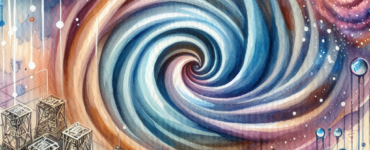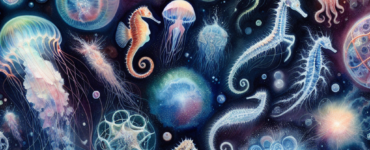Did you know that a day on Venus is longer than a year on Venus?
Venus has an extremely slow rotation on its axis, taking about 243 Earth days to complete one rotation. However, Venus only takes about 225 Earth days to complete one orbit around the Sun. This means a day on Venus (one full rotation) is longer than a Venusian year (one full orbit around the Sun).((https://www.rmg.co.uk/stories/topics/interesting-facts-about-venus))
Here are other interesting facts about Venus that probably might surprise you:
Venus is Upside Down
Venus is the only planet in our solar system that rotates in a unique retrograde direction, making it appear as if it’s upside down compared to other planets.((https://www.aeronomie.be/index.php/en/encyclopedia/venus-backwards-rotation-and-orbital-period)) While planets like Earth rotate from west to east, Venus rotates from east to west. This unique rotation is called retrograde rotation. Additionally, this unusual rotation contributes to Venus having very long days and nights compared to Earth.((https://www.scientificamerican.com/article/why-venus-spins-the-wrong/))
Venus is Hotter Than Mercury
Venus, often cited as the hottest planet in our solar system, owes its scorching temperatures not to its proximity to the Sun but to its extraordinarily dense atmosphere, rich in carbon dioxide. This thick blanket of gas envelops Venus and acts like a thermal trap.((https://www.forbes.com/sites/startswithabang/2016/06/02/why-mercury-isnt-the-solar-systems-hottest-planet/?sh=334d1dd81547))
Mercury, closer to the Sun, receives more solar energy but lacks a significant atmosphere to trap heat. Consequently, Mercury experiences extreme temperature fluctuations, with its surface getting hot during the day but cooling significantly at night. Venus, with its thick atmosphere, maintains a consistently high-temperature day and night, making it the hottest planet in our solar system.((https://science.nasa.gov/venus/))
The Second Brightest Object in the Night, After the Moon
Venus is the brightest object in the night sky after the Moon because it’s close to Earth, has very reflective clouds, and orbits near the Sun.((https://coolcosmos.ipac.caltech.edu/ask/42-Why-is-Venus-so-bright-in-the-night-sky-))
This combination of nearness, reflectivity, and position in its orbit gives Venus its distinctive glow. Visible just after sunset or before sunrise, it earns its nicknames based on when it appears: as the “Evening Star” in the west post-sunset and as the “Morning Star” in the east before sunrise.((https://earthsky.org/astronomy-essentials/venus-brightest-greatest-brilliancy-greatest-illuminated-extent-2/))
The brilliance of Venus is so intense that it can cast shadows and is sometimes visible during daylight hours.((https://phys.org/news/2005-11-shadows-venus.html)) Its visibility and luminosity fluctuate with its orbital position relative to Earth and the Sun. But Venus dazzles in the night sky when the conditions align, outshone only by the moon.((https://www.space.com/33619-visible-planets-guide.html))
The image is created using DALL-E.






































Add comment